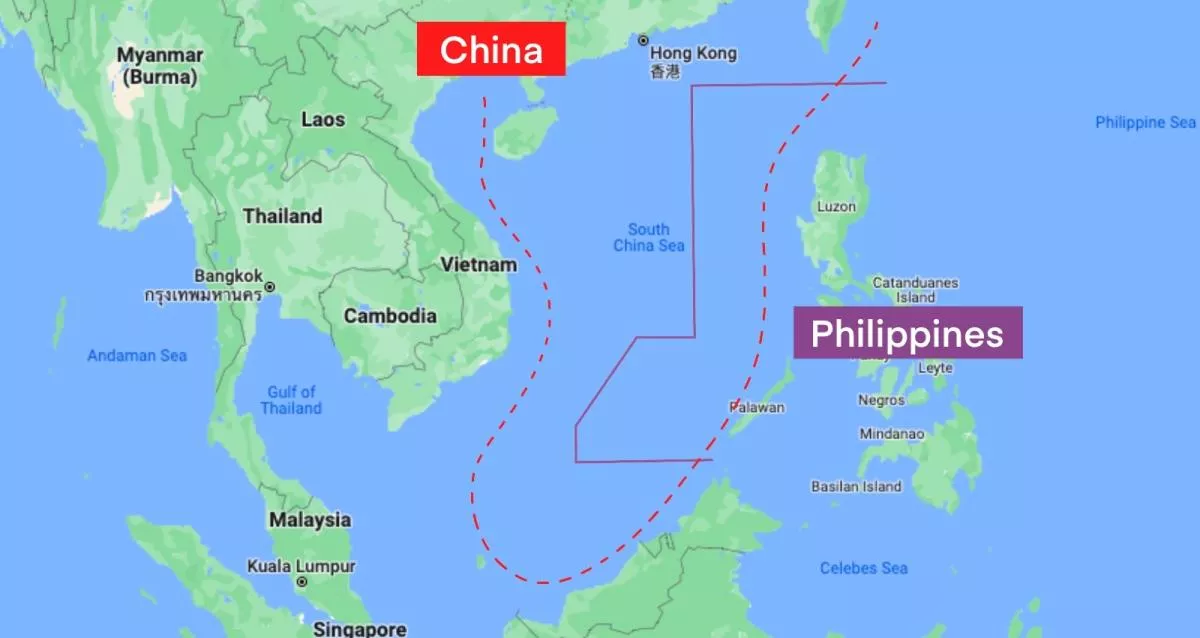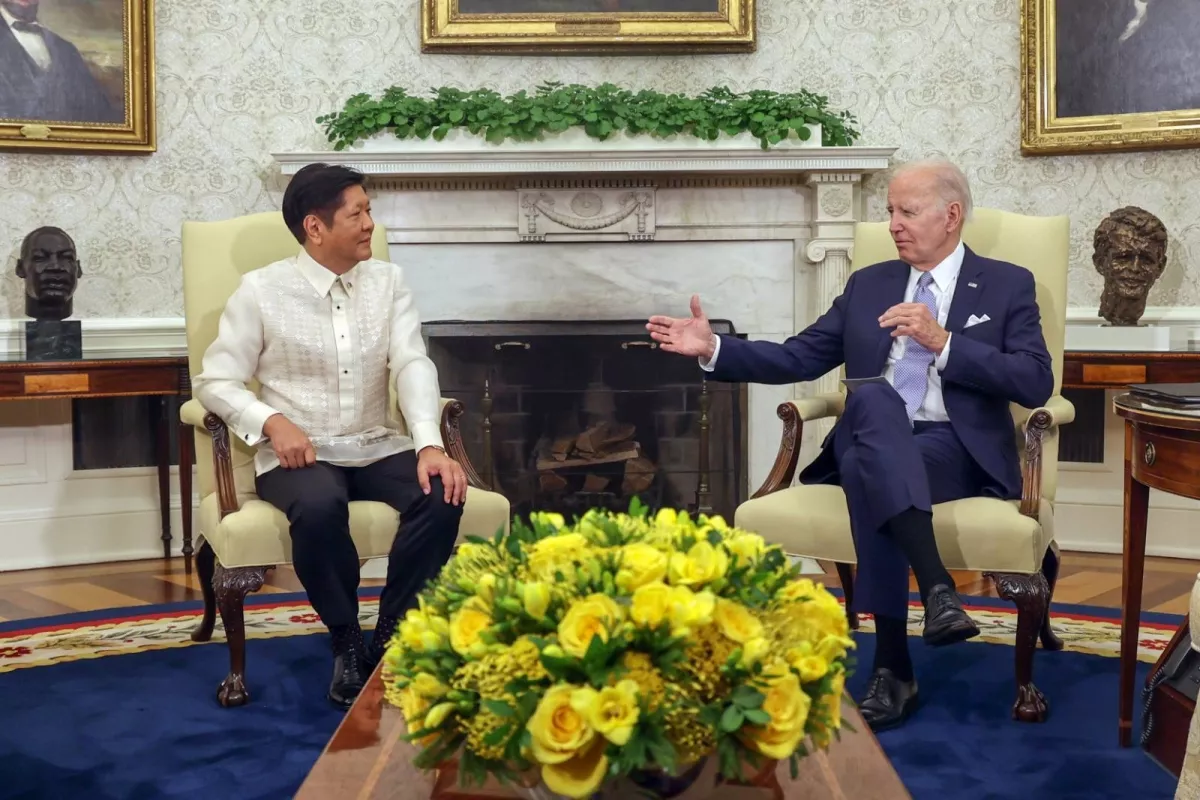Philippines, China in crosshairs of Sino-American rivalry South China Sea tensions surge
Recent brief clashes and confrontations between China and the Philippines in the South China Sea have placed the country in the middle of a Sino-American great power rivalry.
In June 2024, tensions flared between China and the Philippines in the South China Sea when pictures came out of the Chinese Coast Guard threatening Filipino crew with knives and spears. The growing tensions between the two neighboring states steadily led to harsh diplomatic confrontations and bilateral ultimatums. Therefore, China is set to host bilateral talks with the Philippines in September, though their South China Sea dispute is expanding from sea to air, increasing the risk of military confrontation.
China claims indisputable sovereignty over almost all of the South China Sea and most of its islands and sandbars, including many features that are hundreds of miles from mainland China. However, official Manila disputes such claims referring to international law accords. Moreover, unlike other Southeast Asian states with territorial claims in conflict with China, which usually try to resolve disputes quietly with Beijing, the Philippines has openly bolstered its defense cooperation with the United States (US) and publicly pushed back against China's overlapping claims in the South China Sea.

As a result, the US strengthened its rhetoric against China and reaffirmed that the 1951 Mutual Defense Treaty obligates Washington and Manila to help defend each other in major conflicts. In turn, Beijing adopted a new law that authorized its coast guard to seize foreign ships that illegally entered China's territorial waters and detain foreign crews for up to 60 days. Nevertheless, considering the US vocal support, the Philippines government will unlikely back down at this stage.
The election of the current President Marcos in 2022 has caused another shift in the Philippine foreign policy. Marcos has reinvigorated cooperation with the US while attempting to assume a stronger line on Chinese assertive actions in the SCS. For example, in July 2024, Washington and Manila signed an agreement containing $500 million worth of new defense aid to modernize the Philippine military and coast guard. The funding is meant to better equip the Philippine armed forces to counter Chinese activities in the South China Sea. Consequently, the US concerns regarding the South China Sea are not limited to the China-Philippines confrontation but also potential ramifications for Japan, another major ally in Asia.

US President Joe Biden with President Ferdinand Marcos Jr.
On the other hand, the South China Sea is also thought to hold vast untapped oil and gas reserves, estimated at over 11 billion barrels of oil and 190 trillion cubic feet of natural gas, remaining as a critical link in global trade of $3 trillion annually. Hence, the US considers free navigation in the China Sea as crucial for their geopolitical interest and has conducted several patrols to counter China's claims on the waters. From Washington's perspective, what is very important for the US is to protect the territorial integrity of its ally—the Philippines—by deterring China's expansion and, thus, thwarting its rise as a revisionist power.
As in the case of China, it claims that since 2024, the Philippines has repeatedly dispatched military aircraft to invade the islands and reefs of Spratly Islands and Macclesfield Bank and also sent military aircraft to carry out airdrops and replenishment missions over the sea, indicating that air intrusion is becoming another central path for the Philippines to cause trouble in the South China Sea.
The current confrontation and bellicose rhetoric suggest that diplomatic negotiations and face-to-face communication will fall short of easing tensions between Manila and Beijing. The deepening US-China confrontation also adds more fuel to the dispute, making it more complex. In addition, China launched massive construction of more battleships and submarines, boosting concerns in the West regarding Beijing's intentions to go for an escalation in the region. The South China Sea's economic and strategic importance will likely remain an apple of discord between China and regional states, including the US.








